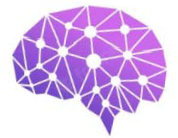
qEEG screening
Service code s9007
Short description
Maturation refers to the timely appearance or unfolding of brain structures, events and processes that are the result of the interaction between genes and the environment. Brain maturation can be delayed, equal, or accelerated when compared to chronological age. Delayed brain maturation may reflect a brain abnormality and can manifest as an isolated “symptom”, a cluster of cognitive deficiencies, or even a neuropsychiatric disorder(s). Accelerated maturation may reflect adaptation to early psychological trauma or faster brain and cognitive development, which may be a sign of increased learning capabilities and more mature cognitive functions.
For an objective assessment of neurophysiologic maturation processes of the brain, qEEG screening can be helpful.
Results
By performing this qEEG screening you will get the information on:
- the degree of brain maturation relative to chronological age: maturational delay, maturation gap, parity, or acceleration,
- the degree of maturation of different brain structures in their relation to chronological age,
- analysis of risk factors and potential cognitive dysfunctions related to the maturation process.
Notes:
- The results of qEEG analysis are put in context of published scientific studies, the individual’s health history, complaints, symptoms and psychometric and other evaluations (if available).
- Present psychotropic medication use may affect the results.
To place a service order, use the following email:
References
- Ahn H, Prichep LS, John ER, et al: Developmental equations reflect brain dysfunction. Science 1980; 210: 1259-1262.
- Harmony T, Alvarez A, Pascual R, et al: EEG maturation of children with different economic and psychosocial characteristics. Int J Neurosci 1987; 31: 103-113.
- John ER, Prichep L, Ahn H, Easton P, Fridman J, Kaye H. Neurometric evaluation of cognitive dysfunctions and neurological disorders in children. Progress in Neurobiology 1983; 21(4): 239-290.
- Marosi E, Harmony T, Sanchez L, et al: Maturation of the coherence of EEG activity in normal and learning-disabled children. Electroencephalogr Clin Neurophysiol 1992; 83: 350-357.